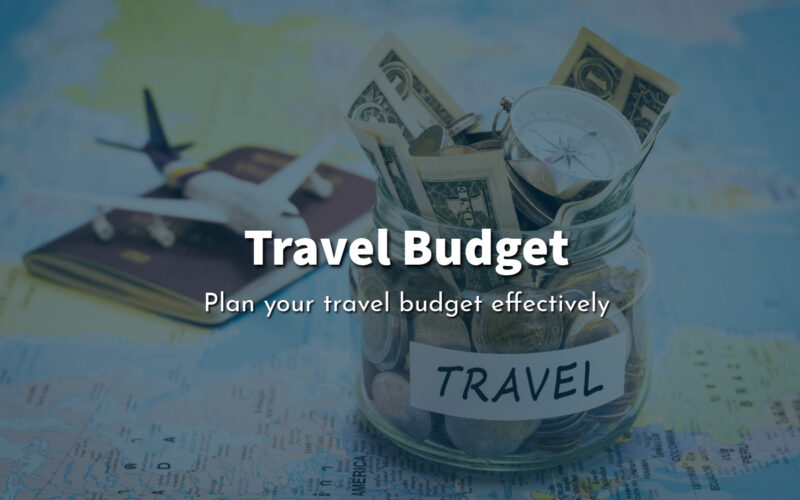what is the best way to plan a travel budget

Planning a travel budget effectively involves several key steps to ensure you have a clear understanding of your expenses and can manage your finances wisely. Your travel style greatly influences your budget. Backpacking and staying in hostels will be cheaper than luxury hotels and fine dining. Decide on the level of comfort and luxury you prefer, whether you’re comfortable with basic accommodations or desire more upscale options.
10 Steps Approach
1. Destination Research and Cost Estimation:
- Research your destination thoroughly to understand the cost of living, currency exchange rates (if applicable), and typical expenses such as accommodation, meals, transportation, and activities.
- Use travel websites, blogs, and forums to get insights from other travelers about their spending experiences in that location.
2. Set a Total Budget:
Determine the total amount you are willing and able to spend on your trip. This should include all anticipated expenses for the entire duration of your travel. Use budgeting apps or spreadsheets to allocate funds for different categories of expenses and track your spending during your trip. This helps you stay within your budget limits.
- Duration of the Trip:
- Longer trips generally require a larger budget due to cumulative expenses over time. Budget for daily expenses multiplied by the number of days you plan to travel.
- Shorter trips can sometimes be more expensive per day due to higher transportation costs spread over fewer days.
3. Break Down Your Expenses:
Create categories for your expenses such as:
- Accommodation: Estimate costs per night based on your preferred type of lodging (hotel, hostel, Airbnb).
- Transportation: Include flights, trains, buses, car rentals, and local transportation (metro, taxis, etc.).
- Food and Drinks: Budget for meals, snacks, and beverages, considering dining out versus cooking your own meals.
- Activities and Entertainment: Allocate funds for sightseeing tours, entrance fees to attractions, shows, and other activities.
- Personal Spending Habits: Consider your personal spending habits and preferences. Are you a food enthusiast who wants to try local cuisine? Do you enjoy shopping for souvenirs? Factor in these discretionary expenses.
- Miscellaneous: Factor in expenses like travel insurance, souvenirs, tips, and unexpected costs.
4. Allocate Funds for Contingencies:
Always set aside some money for unexpected expenses or emergencies. A contingency fund helps cover unexpected costs like medical emergencies, transportation delays, or changes in plans.
5. Use Budgeting Tools:
- Utilize budgeting apps or spreadsheets to track your expenses and ensure you stay within your allocated budget.
- Many apps allow you to input expenses in real-time, categorize them, and provide insights into where your money is going.
6. Monitor Exchange Rates and Fluctuations:
If traveling internationally, keep an eye on exchange rates and consider locking in favorable rates through currency exchange or travel money cards.
7. Plan for Pre-Trip Expenses:
Include expenses incurred before your trip such as visa fees, travel insurance, vaccinations, and travel gear (if necessary).
8. Reevaluate and Adjust:
Periodically review your budget during your trip to assess if you are sticking to your plan or if adjustments are needed. This flexibility helps in managing unexpected expenses or changes in plans.
9. Consider Alternative Accommodations and Transportation:
Explore cost-saving options such as staying in hostels, using public transportation, or opting for budget airlines.
10. Prioritize Experiences:
Allocate more budget to activities or experiences that are most important to you, whether it’s exploring cultural sites, trying local cuisine, or participating in adventure activities.
Example Budget Range
For a rough estimate, budget travelers might spend around $50-$100 per day in affordable destinations, while mid-range travelers could budget $100-$200 per day. High-end travelers or those visiting expensive cities might budget $200-$500 or more per day.
Your travel budget should reflect your individual circumstances and preferences. Plan thoughtfully, research thoroughly, and be prepared for fluctuations in costs. Adjust your budget as needed based on your specific travel plans and priorities.
Check out Travel Budget Apps that fit your requirements.








